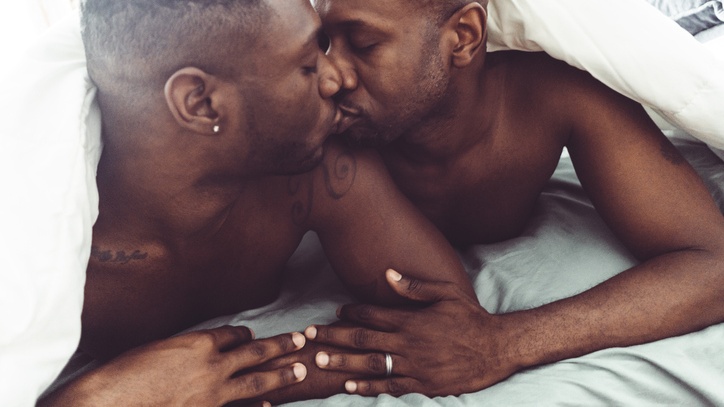Raise your hand if you’ve ever been personally victimized by society’s placing of heteronormative standards on what constitutes a romantic relationship.
When I reflect on my formative years, I can vividly recall seeing healthy, happy relationships in the media and around me — but they were all heterosexual. While I had always dreamed of having my own whirlwind, fairytale romance like Aladdin and Jasmine, Moesha and Q, or even Whitley and Dwayne, there were no same-gender-loving couples for me to idolize. Many of my friends could look at the television screens and immediately see themselves represented. I didn’t have that luxury.
What would compound these feelings was the incessant interrogation from my extended family on whether or not I was seeing any young ladies or my thoughts on how attractive popular, mainstream Black women were. I realized early on that I wouldn’t — and couldn’t — subscribe to this rigid form of romance that only encompasses love for one group of people and I also realized that I deserved the fairytale romance that I rarely saw as representative of Black, gay men.
As a recovering people pleaser, I can honestly say that the majority of my life has consisted of me looking for approval or even permission to live and date freely. While I knew that I envisioned this idyllic future where I’d meet my Prince Charming and be swept off my feet in an all-Black hellcat with iced-out rims, I suppressed that. I drowned in heteronormativity and as a result, drowned my dreams because I felt as if it wasn’t permissible to be candid about what and who I truly wanted. Even when I realized that I had no intention of pursuing women romantically and that I knew exactly what love looked like to me, I had no idea how to voice that in fear of homophobia rearing its ugly head.
Oftentimes, people who identify as heterosexual and govern their love lives as such can operate in such a bubble of entitlement, imposing this on those of us who do not. These inappropriate intrusions can be subtle, like the questioning laid upon children on whether or not they have a girlfriend or boyfriend. They can also be more pointed, taking the form of random bible scriptures being pitted against you to dictate why you must adhere to its instructions on what love is. Homophobia is so entrenched in the Black community that it’s almost become the norm to assume that relationships between two straight people are the only ways that true love can manifest.
We could have discourse around this for years but truthfully, it starts with folks minding the business that pays them.
What business is it to anyone, who I love? What business is it to anyone, who I decide to marry? Outside of said person, who I decide to love and build a life with should be no one’s concern but mine. It’s incredibly exhausting to scroll down my timeline to see literal essay-length comments on why same-gender-loving individuals in the Black community will be the single cause of its degradation as we know it. I’ve seen photos of beautiful same-sex Black couples post photos of their families and homophobic trolls have camped out in the comments section condemning them as if they wrote the bible themselves. It’s not only crass and tasteless but it adds more than enough ammunition as to why waiting for anyone’s permission to live my dream, fairytale romantic story is null and void. The only permission that I’m now waiting on is that of myself.
A few years shy of entering into my third decade of life, I’ve learned to strip myself of everyone else's notions of the life I should live. When I was younger, it was so easy to let other’s perceptions dictate the life that I had planned for myself and what happiness would look like for me but that’s all in the past. While I had waited years for external approval and permission to accept myself for who I am, I am now seeking it from myself. The act of deconstructing all of this internalized homophobia to make room for the love I deserve and yearn for is a lifelong journey that I’m finally glad to be on.
